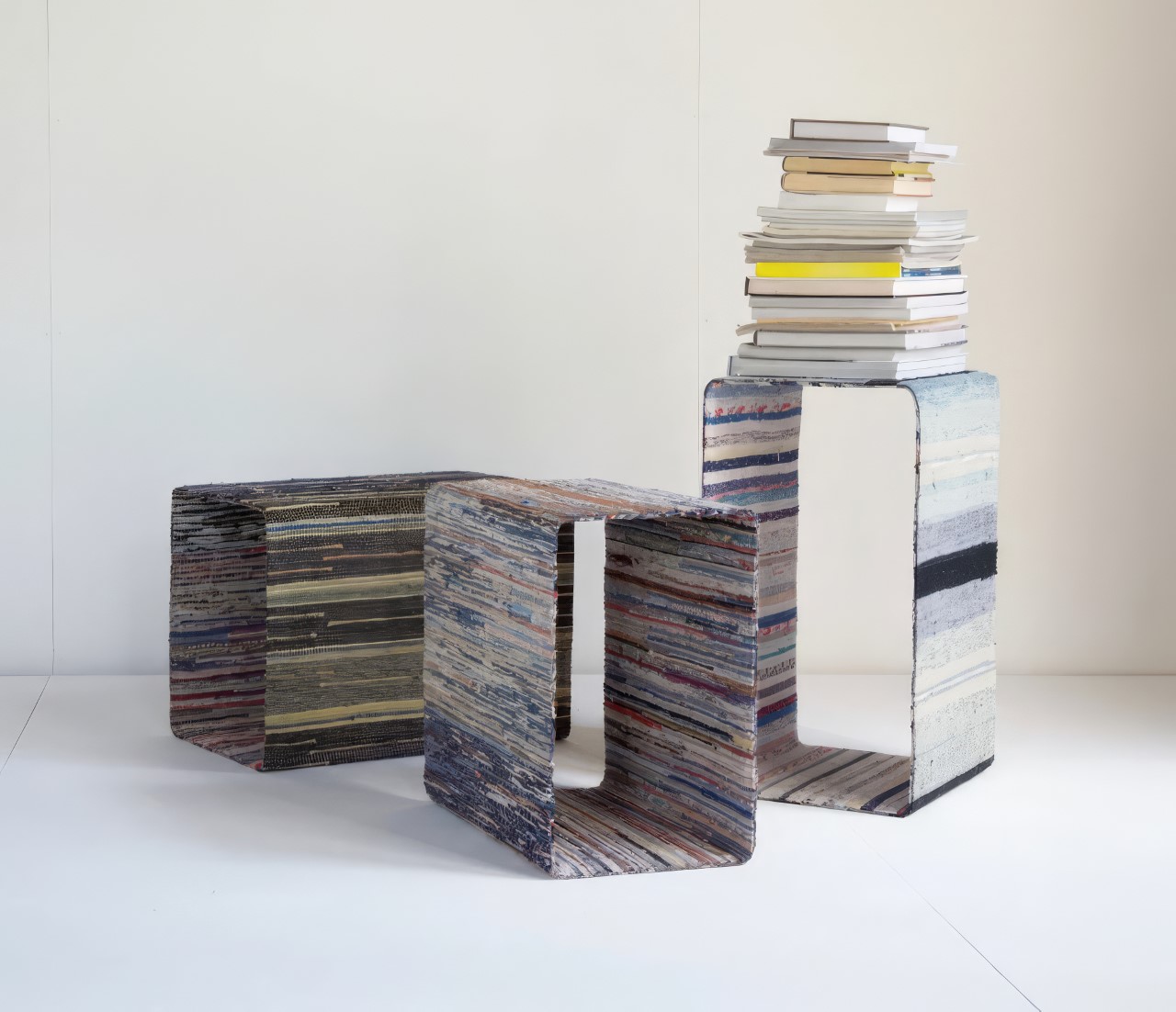
The timeless craft of Swedish rag rugs, a cherished tradition spanning over 150 years, finds a contemporary reinterpretation in the hands of Stockholm-based designer Lars Hofsjö. Rooted in a rich cultural heritage, these rugs have been woven by generations of women using worn-out clothes, curtains, sheets, and upholstery. The process transforms leftover fabrics into intricately patterned, durable rugs, celebrated for their strength and firm structure, a testament to the adaptive re-use of materials.
Designer: Lars Hofsjö
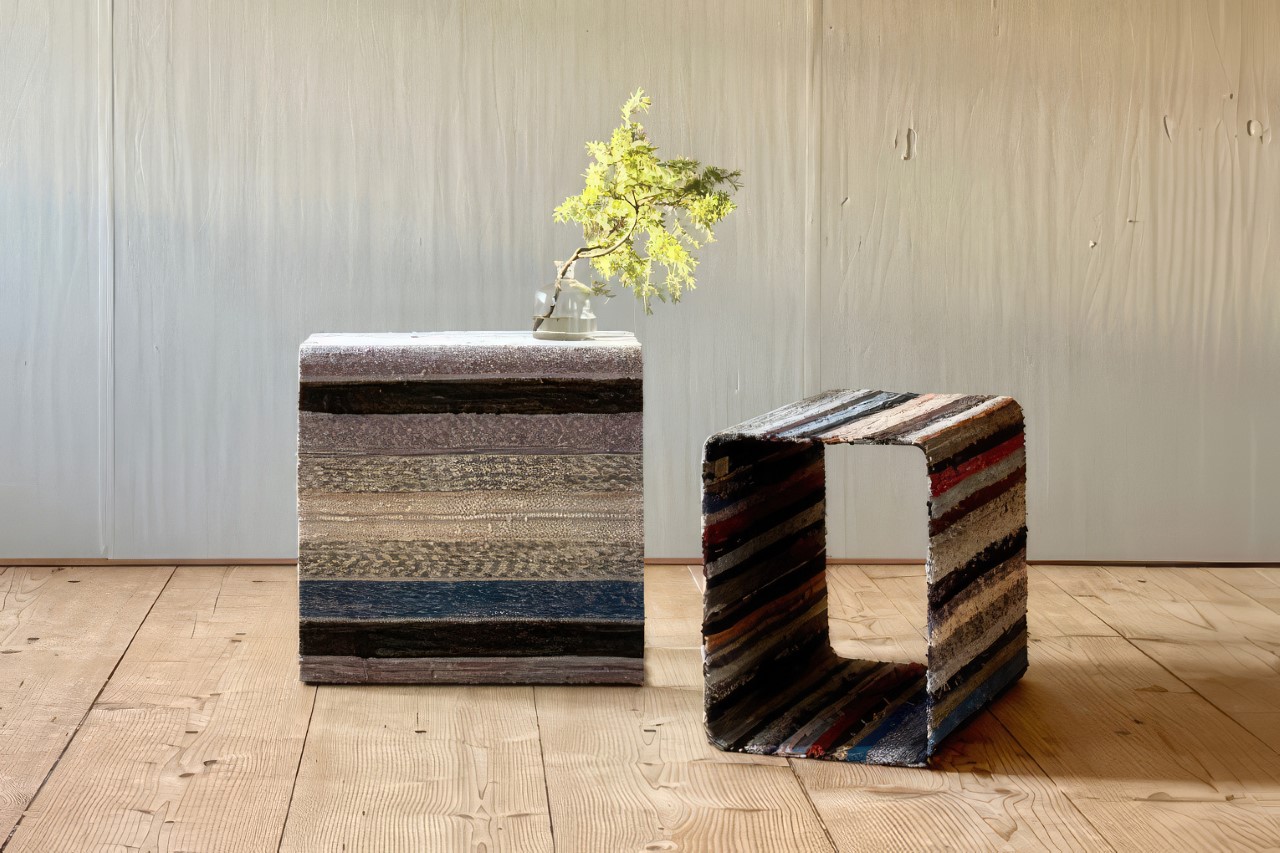
Lars Hofsjö, the creative force behind the Swedish furniture brand Rumbler, has skillfully reimagined these traditional rag rugs into a unique collection of furniture pieces. His approach involved scouring markets, antique shops, and the countryside to handpick rag rugs, chosen specifically for their thinness, tightness, and color. These selected fabrics are then meticulously wrapped around aluminum shapes, crafting plush side tables that blend the rustic charm of the rugs with modern design sensibilities.
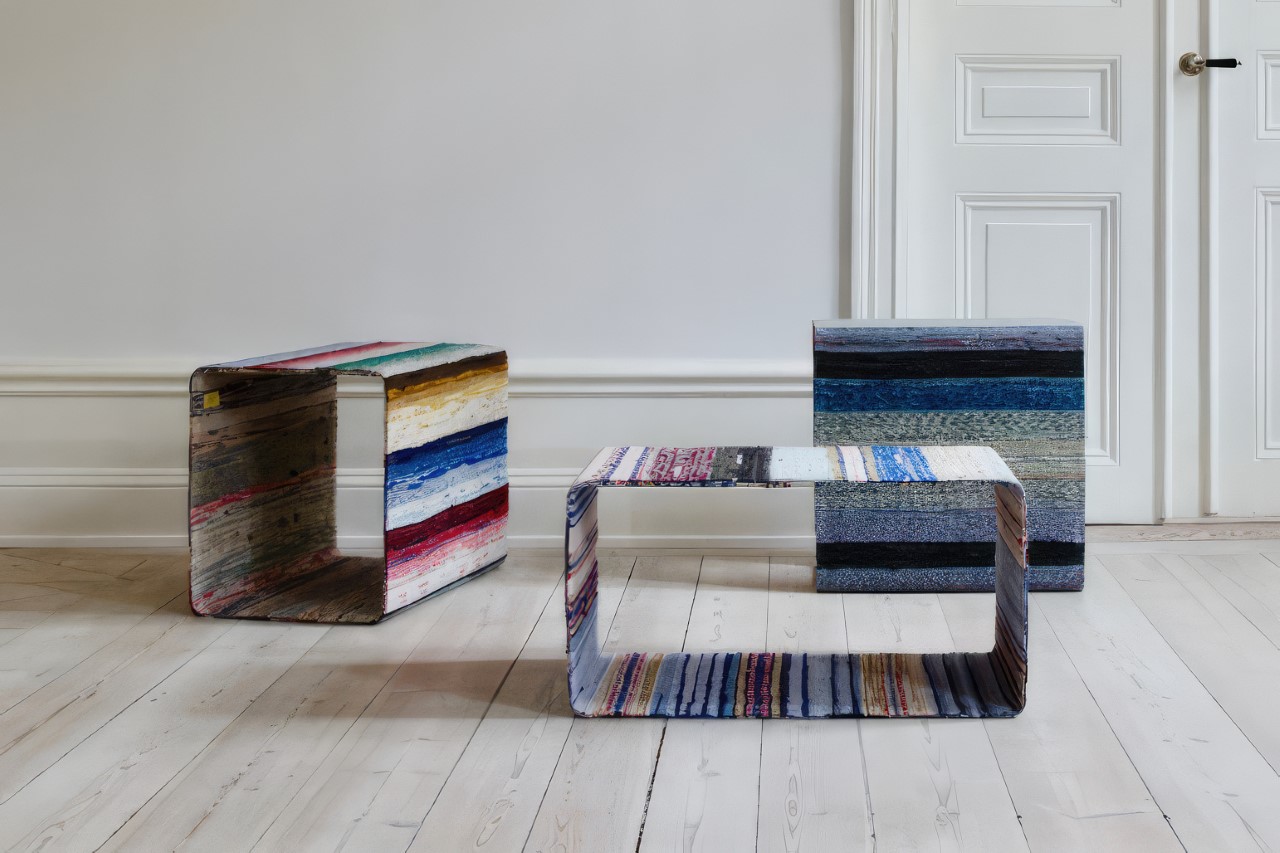
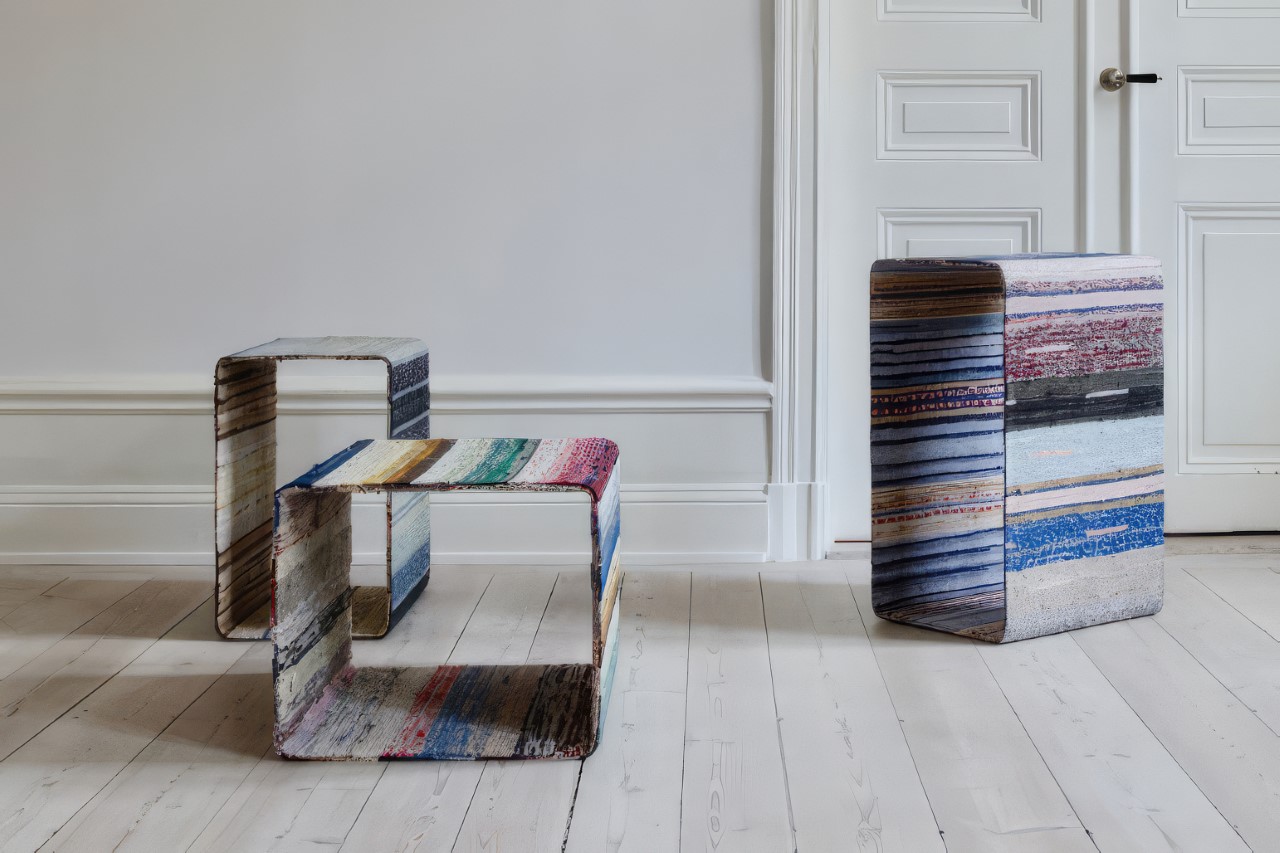
The ‘Torp’ series, characterized by its rectangular shape, is a limited numbered edition, with each piece distinct in quality, palette, and characteristics. Contrasting this, the ‘Dunker’ collection features hexagonal units, accentuated with diverse materials like leather, stone, and wood, harmonizing with the texture of the rag rugs. This blend of materials not only adds a tactile dimension to the pieces but also pays homage to the multifaceted nature of Swedish design, where tradition and innovation coexist harmoniously.
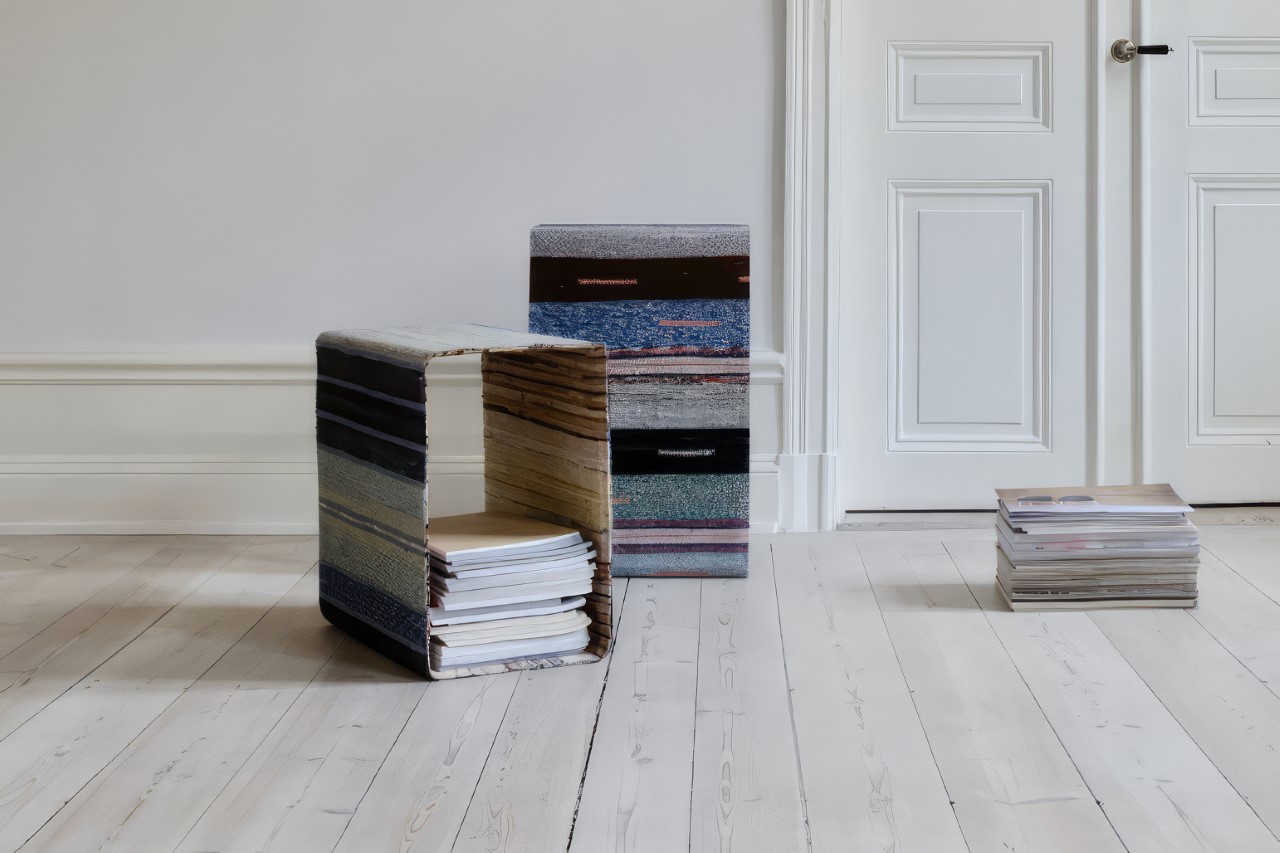
Through his innovative approach, Hofsjö offers a fresh perspective on sustainable design. By repurposing these historical textiles, he not only preserves a vital part of Swedish heritage but also provides a contemporary relevance to the rag rugs, demonstrating their versatility beyond their original, utilitarian purpose. The tables stand as a testament to the enduring beauty of Swedish crafts, bridging the gap between historical craftsmanship and modern living spaces.
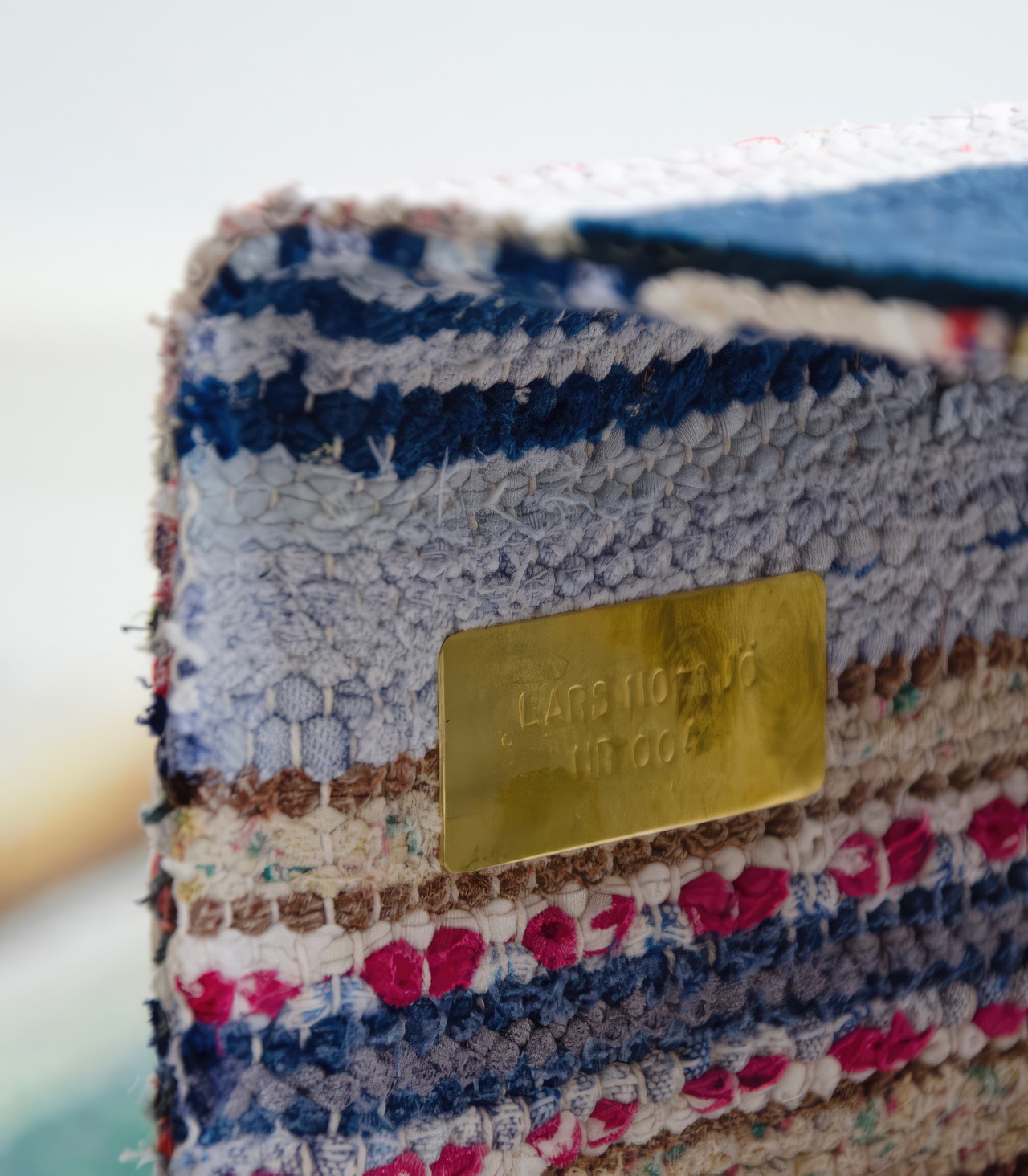
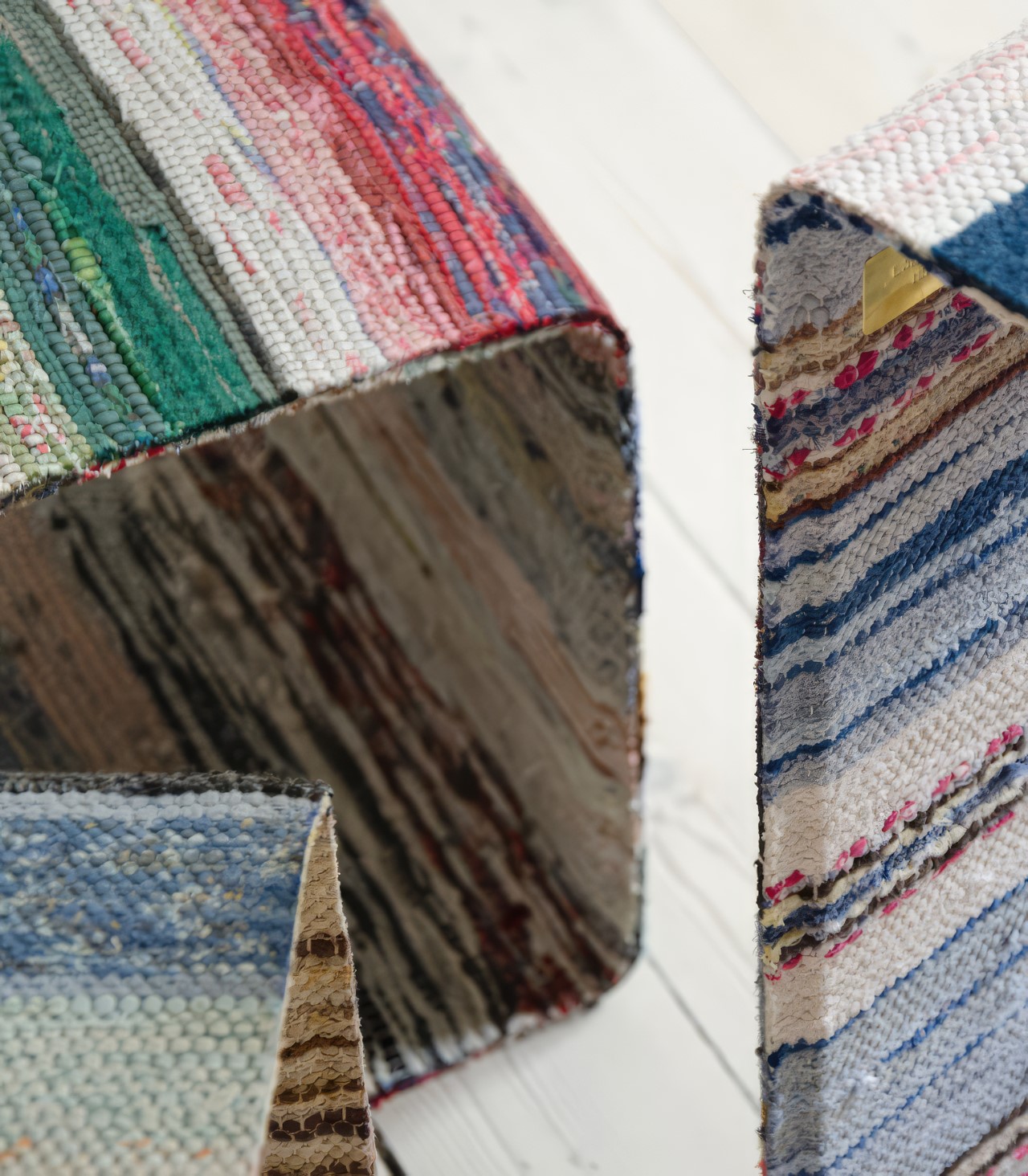
Hofsjö’s work is a remarkable example of how design can be both a custodian of tradition and a catalyst for innovation. It highlights the potential of traditional crafts to inspire contemporary design solutions, underscoring the importance of sustainability in design. By breathing new life into these age-old textiles, Hofsjö not only honors the legacy of the countless unnamed weavers who have kept this tradition alive but also points the way forward for future generations of designers to explore and reinvent.
